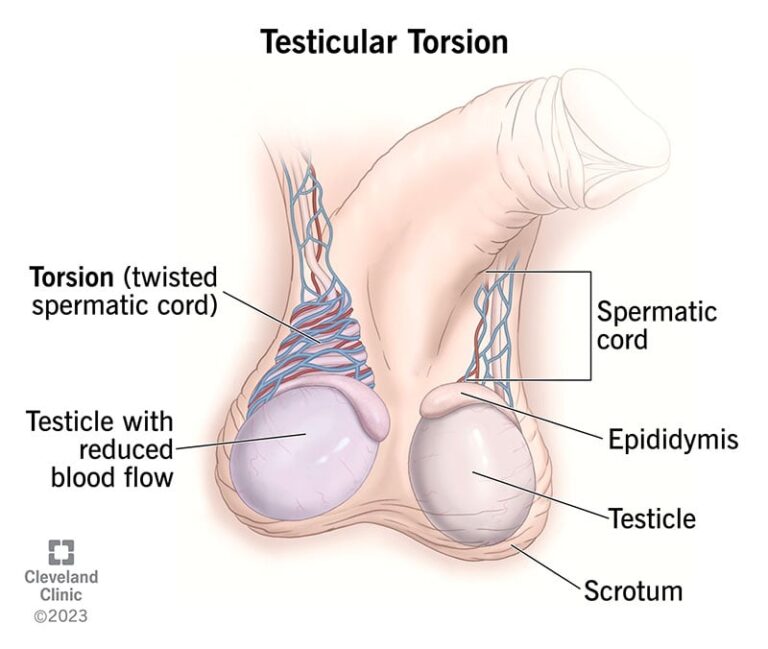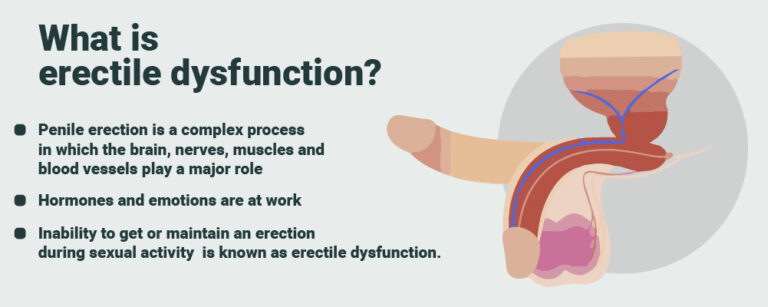Erectile Dysfunction and Mental Health: Breaking the Stigma

Introduction
Erectile dysfunction (ED) is a condition that affects the ability of a man to achieve or maintain an erection sufficient for sexual intercourse. It is a common problem that affects about 30 million men in the United States, and the prevalence increases with age. ED can have various causes, such as physical, psychological, or a combination of both. However, regardless of the cause, ED can have a significant impact on the mental health, self-esteem, and relationships of men who suffer from it.
Many men with ED experience feelings of shame, embarrassment, or inadequacy. They may avoid talking about their problem with anyone, not even their partner or doctor. They may also lose interest in sex, or experience anxiety or performance pressure when engaging in sexual activity. These negative emotions can lead to depression, low self-confidence, and reduced quality of life. Moreover, ED can also affect the relationship of a man with his partner, causing stress, conflict, or dissatisfaction. ED can also affect the partner’s self-esteem, as they may feel rejected, unattractive, or responsible for the problem.
Unfortunately, there is still a stigma and a lack of awareness around ED, which can prevent men from seeking help and treatment. Many men may feel that ED is a sign of weakness, or that they are less of a man. They may also believe some of the myths or stereotypes about ED, such as that it is a normal part of aging, that it is caused by a lack of attraction or love, or that it can be cured by natural remedies or lifestyle changes. These misconceptions can prevent men from getting the accurate information and the effective treatment that they need.
The main purpose of this blog post is to raise awareness and break the stigma around ED, and to provide some tips on how to cope with it. ED is nothing to be ashamed of, and it is a treatable condition that can be managed with the right help and support. Seeking help is a sign of strength, not weakness, and it can improve your physical and mental health, as well as your relationship and intimacy. In this blog post, I will discuss some of the possible causes of ED, the available treatments, and the ways to communicate with your partner, your doctor, and your therapist. I will also share some of the resources and links that can help you further with this issue. I hope that by reading this blog post, you will feel more informed, empowered, and hopeful about your situation. You are not alone, and you can overcome this.
Physical and Psychological Causes of erectile Dysfunction(ED)

Erectile dysfunction (ED) can have various causes, both physical and psychological. Some of the physical causes include cardiovascular disease, diabetes, hormonal imbalance, and medication side effects. Cardiovascular disease can affect the blood flow to the penis, which is essential for an erection. Diabetes can damage the nerves and blood vessels that control the erection process. Hormonal imbalance, such as low testosterone, can reduce the sexual desire and the response to stimulation. Medication side effects, such as from antidepressants, antihypertensives, or antihistamines, can interfere with the nerve signals or the blood flow that are involved in the erection mechanism .
Some of the psychological causes include depression, anxiety, stress, and relationship problems. Depression can lower the mood and the interest in sex, as well as affect the levels of neurotransmitters, such as serotonin and dopamine, that regulate the sexual function. Anxiety can cause nervousness, fear, or performance pressure, which can inhibit the relaxation and arousal that are necessary for an erection. Stress can trigger the release of hormones, such as cortisol and adrenaline, that can constrict the blood vessels and reduce the blood flow to the penis. Relationship problems, such as lack of trust, communication, or intimacy, can affect the emotional connection and the sexual satisfaction between partners .
These physical and psychological factors can also interact and create a vicious cycle of ED and mental distress. For example, a man who has diabetes may experience ED due to the nerve or blood vessel damage. This may cause him to feel anxious or depressed about his sexual performance, which can worsen his ED. This may also affect his relationship with his partner, who may feel rejected or unloved, which can increase his stress and lower his self-esteem. This may further impair his sexual function and his mental health, and so on. Therefore, it is important to address both the physical and the psychological aspects of ED, and to seek help and treatment as soon as possible.
How Stigma and Lack of Awareness Prevent Men from Seeking Help for ED
One of the reasons why ED is a challenging condition to deal with is the stigma and the lack of awareness that surround it. Despite being a common problem, ED is often under-reported and under-treated. According to a study, only about 25% of men with ED seek medical help, and only about 10% receive treatment. Many men may feel too embarrassed or ashamed to talk about their problem, or they may think that it is not a serious issue that requires attention. They may also fear being judged, ridiculed, or rejected by others, especially by their partner or their peers.
The stigma around ED can also make men feel inadequate or less of a man. They may associate their sexual performance with their masculinity, identity, or worth. They may feel that they have failed themselves or their partner, or that they have lost their attractiveness or virility. They may also compare themselves with other men, or with unrealistic standards or expectations that are portrayed in the media or the society.
The lack of awareness around ED can also lead to misinformation, myths, or stereotypes that can prevent men from getting the accurate information and the effective treatment that they need. Some of the common misconceptions about ED include:
- ED is a normal part of aging, and there is nothing that can be done about it
- ED is caused by a lack of attraction or love for the partner, or by infidelity or sexual boredom
- ED can be cured by natural remedies, such as herbs, supplements, or exercises, or by lifestyle changes, such as quitting smoking, drinking, or stress
- ED is not a medical condition, but a psychological one, and it can be solved by positive thinking, relaxation, or counseling
These factors can result in isolation, frustration, and resentment, which can worsen the mental health and affect the quality of life of men with ED. They may withdraw from social or sexual activities, or avoid intimacy or affection with their partner. They may also experience anger, guilt, or depression, which can affect their mood, motivation, or productivity. They may also lose hope or confidence in themselves, or in their ability to overcome their problem.
Why Breaking the Stigma and Seeking Help for ED is Important
One of the most important steps that men with ED can take is to break the stigma and seek help and treatment for their condition. There are many reasons why this is beneficial, not only for their sexual function, but also for their overall health and well-being.
First of all, there are many effective and safe treatments available for ED, such as medication, injections, pumps, or implants. These treatments can help men achieve and maintain an erection, and restore their sexual function and satisfaction. According to a study, about 80% of men who received treatment for ED reported improvement in their sexual performance and quality of life. Another study found that men who used medication for ED had lower rates of cardiovascular events, such as heart attack or stroke, than men who did not. These treatments can also have minimal or manageable side effects, such as headache, flushing, or nasal congestion, which can be reduced by adjusting the dose or switching the type of medication.
Secondly, seeking help and treatment for ED can also improve the mental health, self-esteem, and confidence of men who suffer from it. By addressing the physical and psychological causes of ED, men can reduce their stress, anxiety, depression, and guilt, and increase their mood, motivation, and productivity. They can also feel more comfortable and confident in their sexuality, identity, and worth, and overcome the negative self-image or self-talk that may have affected them. They can also regain their hope and optimism for the future, and feel more empowered and in control of their situation.
Thirdly, seeking help and treatment for ED can also enhance the relationship and intimacy between a man and his partner. By communicating openly and honestly about their problem, they can increase their trust, understanding, and support for each other. They can also explore other ways of expressing intimacy and affection, such as cuddling, kissing, or massage, and find out what works best for them. They can also enjoy a more satisfying and fulfilling sexual life, which can improve their emotional connection and bond.
However, there may be some challenges or barriers that may prevent men from seeking help and treatment for ED, such as fear, denial, or cost. Some men may fear the possible side effects, complications, or risks of the treatments, or the possible judgment, ridicule, or rejection of others, especially their partner or their doctor. Some men may deny that they have a problem, or that it is serious enough to require attention, or that it can be treated or cured. Some men may also face financial constraints, or lack of insurance coverage, or access to health care services, that may limit their options or choices for treatment.
These challenges or barriers can be overcome by taking some steps, such as:
- Educating yourself and your partner about ED, its causes, its treatments, and its benefits. You can find reliable and accurate information from reputable sources, such as websites, books, or articles, or from your doctor or therapist. You can also read or watch some testimonials or stories of other men who have successfully treated their ED, and learn from their experiences and tips.
- Seeking professional help and advice from your doctor or therapist. They can help you diagnose the possible causes of your ED, and prescribe the appropriate treatment for you. They can also monitor your progress and adjust your treatment as needed. They can also refer you to other specialists, such as a urologist, an endocrinologist, or a psychologist, if needed. They can also provide you with support and guidance for your mental health and relationship issues, and help you develop coping skills and strategies.
- Seeking support and assistance from other sources, such as online forums, support groups, or communities, where you can connect with other men who have ED, and share your experiences, feelings, and advice. You can also reach out to your friends, family, or mentors, who can provide you with emotional support and encouragement. You can also seek financial help or assistance from your insurance company, your employer, or your government, or look for affordable or accessible health care services or programs, that can help you cover the cost or access the treatment for your ED.
In conclusion, breaking the stigma and seeking help and treatment for ED is important for men who suffer from it, as it can improve their physical and mental health, their self-esteem and confidence, and their relationship and intimacy. ED is nothing to be ashamed of, and it is a treatable condition that can be managed with the right help and support. Seeking help is a sign of strength, not weakness, and it can improve your quality of life and happiness. You are not alone, and you can overcome this.
Overcoming Shame and Self-Stigma: Empowering Individuals with Erectile Dysfunction to Seek Help

Living with erectile dysfunction can be a challenging and isolating experience, often accompanied by feelings of shame and self-stigma. These negative emotions can prevent individuals from seeking the help they need to address their condition and regain control of their sexual health. However, it is essential to remember that erectile dysfunction is a common issue that affects many men, regardless of age or background.
Understanding that you are not alone is the first step towards overcoming shame and self-stigma. By acknowledging that erectile dysfunction is a legitimate medical condition with various causes, you can begin to dispel any feelings of personal failure or inadequacy. Research shows that seeking help and support is crucial in managing this condition effectively. By reaching out to healthcare professionals, you can receive expert guidance and access to treatments that can improve your sexual function and overall well-being.
It is important to recognize that seeking help for erectile dysfunction is not a sign of weakness, but rather an act of strength and self-care. By addressing the underlying causes of your condition, you can regain control over your sexual health and enhance your overall quality of life. Remember that you deserve to lead a fulfilling and satisfying sexual life, and seeking help is an empowering step towards achieving that goal. With the support of medical professionals, understanding loved ones, and a network of individuals experiencing similar challenges, you can navigate through the emotions surrounding this condition and embark on a journey towards recovery and self-acceptance.
Support Systems: Building a Network of Understanding and Acceptance for those with Erectile Dysfunction and Mental Health Concerns
Living with erectile dysfunction (ED) can be a challenging experience that takes a toll on both physical and mental well-being. It is important for individuals facing this condition to know that they are not alone and that there is a support system available to them. Building a network of understanding and acceptance is crucial in helping individuals with ED to navigate their journey towards seeking help and finding effective treatments.
Creating an environment where individuals feel safe to talk openly about their experiences with ED is essential. This can be achieved by fostering understanding and empathy among friends, family, and healthcare professionals. Educating ourselves and others about the causes and effects of ED can help dispel common misconceptions and reduce the stigma associated with this condition. By promoting open and nonjudgmental discussions, we can empower individuals to seek the help they need without shame or self-stigma.
How to Cope with ED and Improve Mental Health and Well-being

Another important step that men with ED can take is to cope with their condition and improve their mental health and well-being. There are many ways to do that, such as communicating with their partner, talking to their doctor, talking to their therapist, and talking to other men. Here are some tips on how to do that:
- Communicate with your partner. One of the best ways to cope with ED and improve your relationship and intimacy is to communicate openly and honestly with your partner. You can tell them about your problem, your feelings, and your concerns, and listen to their perspective and needs. You can also express your love, appreciation, and support for each other, and reassure them that you are still attracted and committed to them. You can also explore other ways of expressing intimacy and affection, such as cuddling, kissing, or massage, and find out what works best for you and your partner. You can also seek couples counseling or therapy, if needed, to help you resolve any conflicts or issues that may affect your relationship.
- Talk to your doctor. Another way to cope with ED and improve your physical health is to talk to your doctor. Your doctor can help you diagnose the possible causes of your ED, and prescribe the appropriate treatment for you. They can also monitor your progress and adjust your treatment as needed. They can also refer you to other specialists, such as a urologist, an endocrinologist, or a psychologist, if needed. To make the most of your visit, you can prepare yourself by writing down your symptoms, your medical history, your medications, and your questions. You can also ask your doctor about the possible side effects, complications, or risks of the treatments, and how to manage them. You can also follow your doctor’s instructions, such as taking your medication as prescribed, or using your device or implant as instructed.
- Talk to your therapist. Another way to cope with ED and improve your mental health is to talk to your therapist. Your therapist can help you address the psychological issues that may be contributing to your ED, such as depression, anxiety, stress, or relationship problems. They can also help you develop coping skills, such as relaxation techniques, cognitive-behavioral therapy, or mindfulness. To find a qualified and trustworthy therapist, you can ask your doctor for a referral, or search online for reputable websites, directories, or reviews. You can also set goals for your therapy, such as improving your mood, confidence, or self-esteem, or enhancing your relationship and intimacy. You can also practice the skills that your therapist teaches you, and apply them to your daily life.
- Talk to other men. Another way to cope with ED and improve your well-being is to talk to other men who have ED, or who can support you. You can join online forums, support groups, or communities, where you can connect with other men who have ED, and share your experiences, feelings, and advice. You can also reach out to your friends, family, or mentors, who can provide you with emotional support and encouragement. You can also learn from their experiences and tips, and get inspired by their stories and successes.
In conclusion, coping with ED and improving your mental health and well-being is possible and beneficial for men who suffer from it. By communicating with your partner, talking to your doctor, talking to your therapist, and talking to other men, you can reduce your stress, anxiety, depression, and guilt, and increase your mood, motivation, and productivity. You can also feel more comfortable and confident in your sexuality, identity, and worth, and overcome the negative self-image or self-talk that may have affected you. You can also enjoy a more satisfying and fulfilling sexual life, which can improve your emotional connection and bond with your partner. You deserve to have a happy and healthy life and relationship. 😊
Breaking the Stigma and Seeking Help for ED
In this blog post, I have discussed the topic of Erectile Dysfunction and Mental Health: Breaking the Stigma. I have explained what ED is, how common and under reported it is, and how it can affect the physical and mental health, the self-esteem and confidence, and the relationship and intimacy of men who suffer from it. I have also discussed the possible causes of ED, both physical and psychological, and how they can interact and create a vicious cycle of ED and mental distress. I have also discussed the stigma and the lack of awareness that surround ED, and how they can prevent men from seeking help and treatment. I have also discussed the importance of breaking the stigma and seeking help and treatment for ED, and the benefits and advantages of doing so. I have also provided some tips on how to cope with ED and improve mental health and well-being, such as communicating with your partner, talking to your doctor, talking to your therapist, and talking to other men.
The main message and the call to action of this blog post is to recognize that ED is a common and treatable condition, and that seeking help is a sign of strength, not weakness. ED is nothing to be ashamed of, and it can be managed with the right help and support. Seeking help can improve your physical and mental health, your self-esteem and confidence, and your relationship and intimacy. You deserve to have a happy and healthy life and relationship.
I hope that this blog post has been helpful and informative for you. Remember, you are not alone, and you can overcome this. You are a strong and capable man, and you have a lot to offer to yourself and to your partner. You deserve to have a happy and healthy life and relationship. 😊
FAQs
What are some common mental health concerns associated with erectile dysfunction?
Some common mental health concerns associated with erectile dysfunction include anxiety, depression, low self-esteem, and relationship difficulties.
How can shame and self-stigma impact individuals with erectile dysfunction?
Shame and self-stigma can make individuals with erectile dysfunction feel embarrassed, isolated, and reluctant to seek help. It may also lead to feelings of inadequacy and negatively impact their self-esteem.
Are there support groups available for individuals with erectile dysfunction?
Yes, there are support groups available for individuals with erectile dysfunction. These groups provide a safe space for individuals to share their experiences, receive emotional support, and learn coping strategies.
How can I support a loved one who is struggling with erectile dysfunction and mental health concerns?
You can support a loved one by being understanding and non-judgmental, encouraging them to seek professional help, and offering emotional support. It’s important to listen actively and validate their feelings.
Can medications for erectile dysfunction affect mental health?
Some medications for erectile dysfunction may have potential side effects on mental health. It is advisable to consult a healthcare professional for a comprehensive understanding of the risks and benefits of specific medications.
Are online resources available for individuals with erectile dysfunction and mental health concerns?
Yes, there are various online resources available, including websites, forums, and educational materials, that provide information, guidance, and support for individuals with erectile dysfunction and mental health concerns.
What are some lifestyle changes that can improve erectile dysfunction and mental well-being?
Lifestyle changes that can improve erectile dysfunction and mental well-being include regular exercise, a balanced diet, stress management techniques, open communication in relationships, and seeking professional help when needed.
Can therapy be beneficial for individuals with erectile dysfunction and mental health concerns?
Yes, therapy can be beneficial for individuals with erectile dysfunction and mental health concerns. It can help address underlying psychological factors, improve coping mechanisms, and enhance overall well-being.
Is erectile dysfunction solely caused by mental health concerns?
No, erectile dysfunction can be caused by a combination of physical, psychological, and emotional factors. While mental health concerns can contribute, there can be other underlying medical causes as well.
Where can I find professional help for erectile dysfunction and mental health concerns?
You can find professional help for erectile dysfunction and mental health concerns by consulting healthcare professionals such as urologists, psychologists, psychiatrists, or sexual health specialists. You can also reach out to your primary care physician for referrals.







